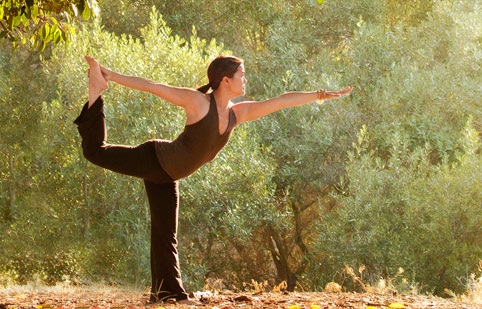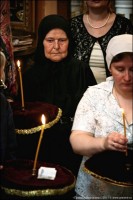 I attended my first yoga class recently. Years of joint pain and multiple surgeries from old athletic injuries prohibit me from what I called, real exercise, and so I approached yoga to help my flexibility and balance. Skeptical, I entered the room looking at the people, the lit candle on the floor, and listening to the new-age music playing. Within the first minutes, I had completely forgotten my intentions of flexibility and balance and began internally judging the oddly dressed, middle-aged participants, the silly ‘spiritual candle’ and the music… well, let’s just say I was awaiting a small man playing a sitar to walk into the room! I was not getting anything out of this class except some good joke material, but not because the yoga exercises were bad – I was getting nothing out of the class because I allowed my focus and intention to be altered. Due to my choice, I was at best a witness, but probably more likely a cynic of what yoga could do for me, and I questioned why I was there and if I would ever return.
I attended my first yoga class recently. Years of joint pain and multiple surgeries from old athletic injuries prohibit me from what I called, real exercise, and so I approached yoga to help my flexibility and balance. Skeptical, I entered the room looking at the people, the lit candle on the floor, and listening to the new-age music playing. Within the first minutes, I had completely forgotten my intentions of flexibility and balance and began internally judging the oddly dressed, middle-aged participants, the silly ‘spiritual candle’ and the music… well, let’s just say I was awaiting a small man playing a sitar to walk into the room! I was not getting anything out of this class except some good joke material, but not because the yoga exercises were bad – I was getting nothing out of the class because I allowed my focus and intention to be altered. Due to my choice, I was at best a witness, but probably more likely a cynic of what yoga could do for me, and I questioned why I was there and if I would ever return.
When entering the Divine Liturgy our intention and focus is to be the experience of Jesus Christ, Who heals us and makes us whole. It is easy to affirm this intention while outside the Divine Liturgy, however, I challenge myself and others to affirm this focus and intent from the moment that we pull into the parking lot until the moment we leave on Sunday morning. To not be concerned with the type of cars that we see in the lot, who is (or is not) greeting us in the narthex as we enter the church, who we sit by, and what that other person is wearing. To not be consumed with our like or dislike of the music, the language of the service, or if the altar boys lined up a bit too far to one side… When we choose to allow our focus and intention toward the Divine Liturgy be altered from anything other than the experience of God – we become witnesses at best, yet probably most likely cynics – perhaps questioning why we are even there and if we will return.
Twenty minutes into the class I was contemplating walking out and attempting to salvage a workout on the elliptical machine, but I stayed. I have heard from so many people that yoga could be a good thing for me that I had to complete at least one class. The only way that I could stand staying was to close my eyes and refocus on my original intention – flexibility and balance. By choosing to refocus, in moments I was able to begin approaching what was offered responsibly. As a beginner, my form was far from perfect, but it did improve. My breathing stabilized, and I found myself immersed in the Jesus Prayer; Lord Jesus Christ, Son of God, have mercy on me, a sinner. By simply choosing to refocus on my original intention – I was starting to get something out of yoga.
In the Divine Liturgy we are not exempt from temptation; in fact, it is even more prevalent as the evil one does not want anyone to approach the salvific experience of Christ. In moments of honesty, we may find ourselves straying from a focused participation in the service. As people of faith, we approach the Divine Liturgy to be healed by God. This reality affirms that our God is a loving and merciful God, Who is willing to receive us, despite our imperfections, when we choose Him. When our focus strays during the Divine Liturgy, if we choose to refocus our intent to the experience of Jesus Christ, that same loving God will accept our pilgrimage and receive us with compassion and embrace. By simply choosing to refocus on your original intention, you will start to ‘get something out of the Divine Liturgy.’
I now recognize yoga as exercise and have chosen to go again.
Do you recognize the Divine Liturgy as necessary for your soul, and will you choose to go again?
















